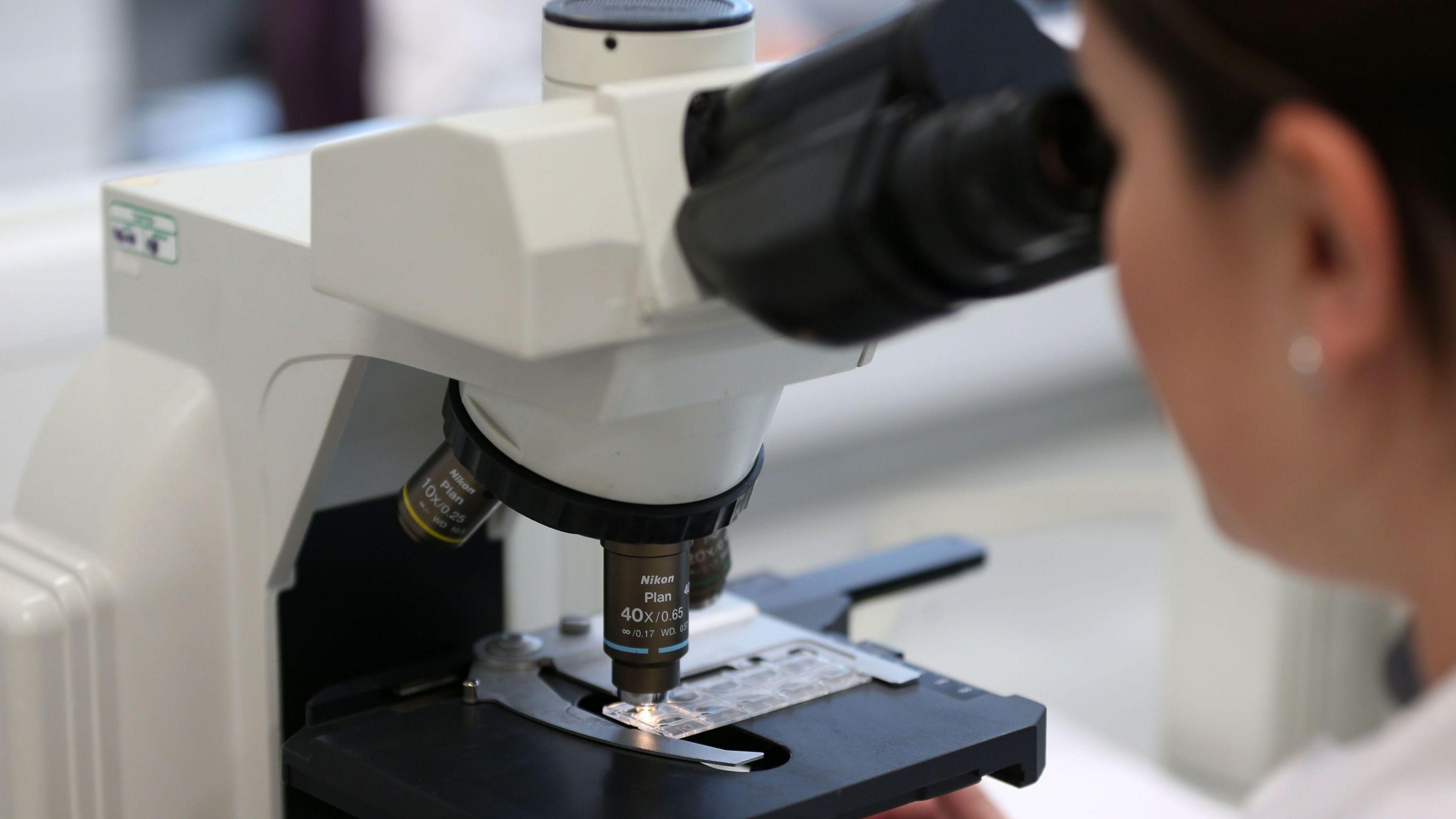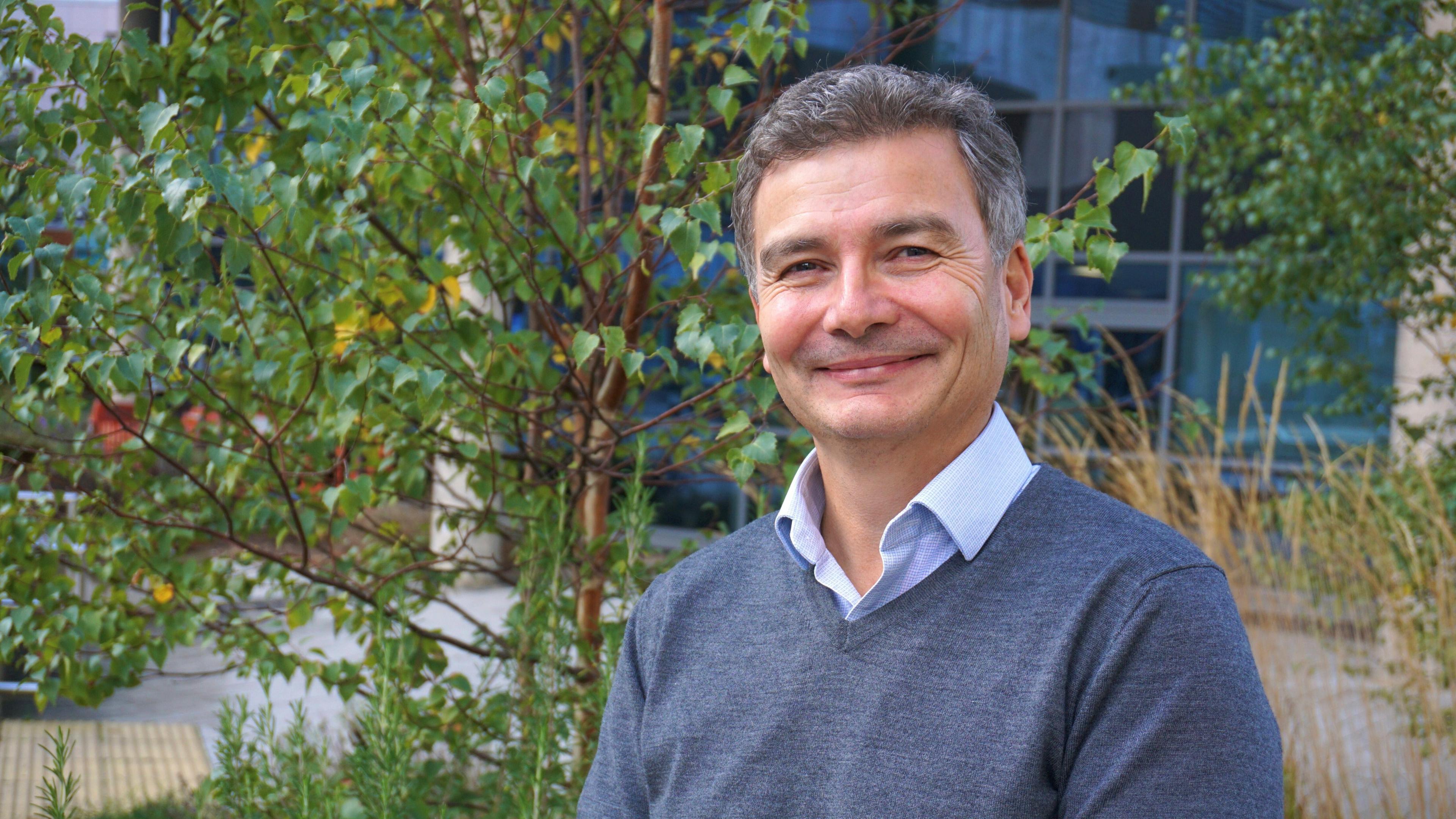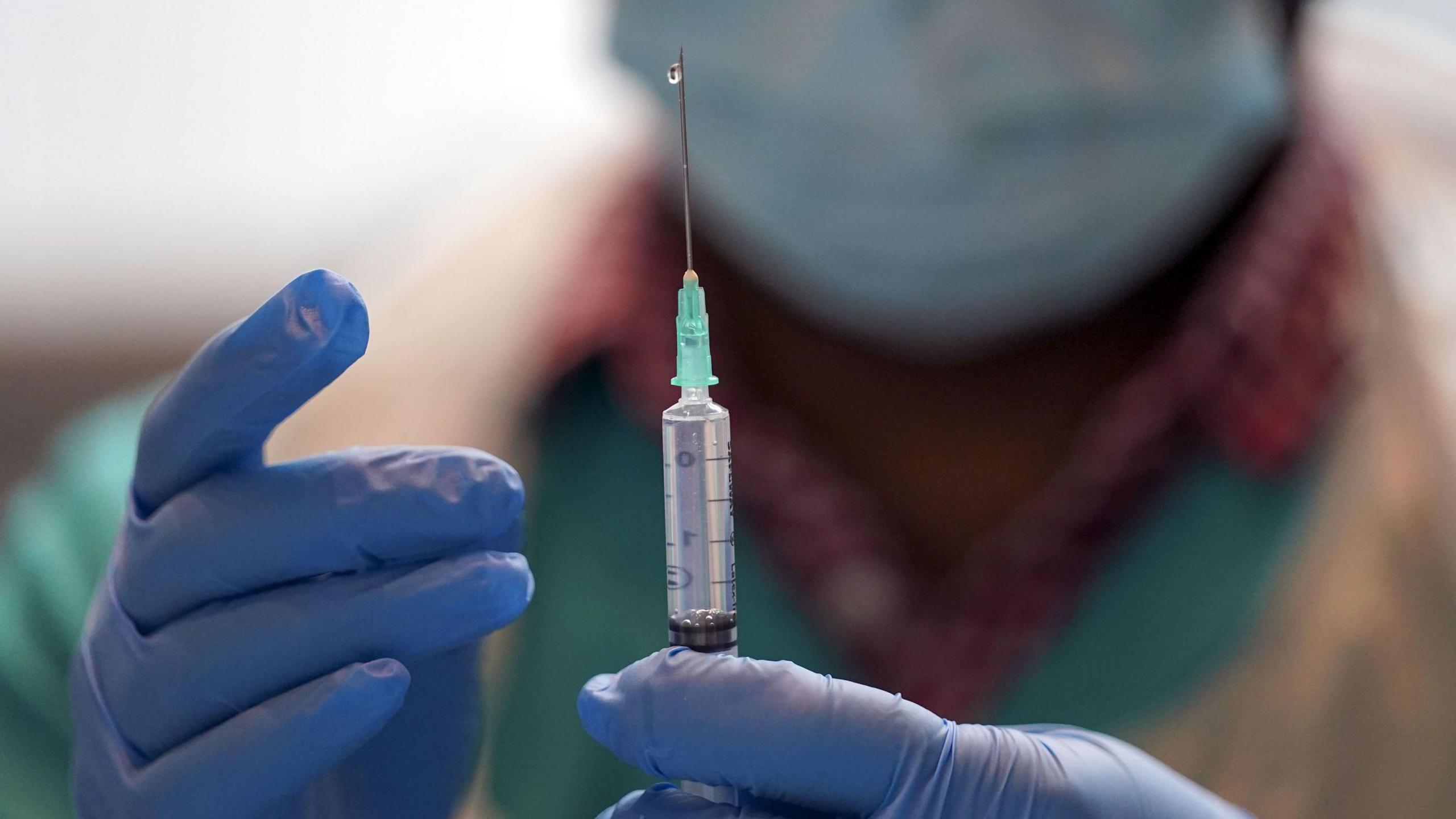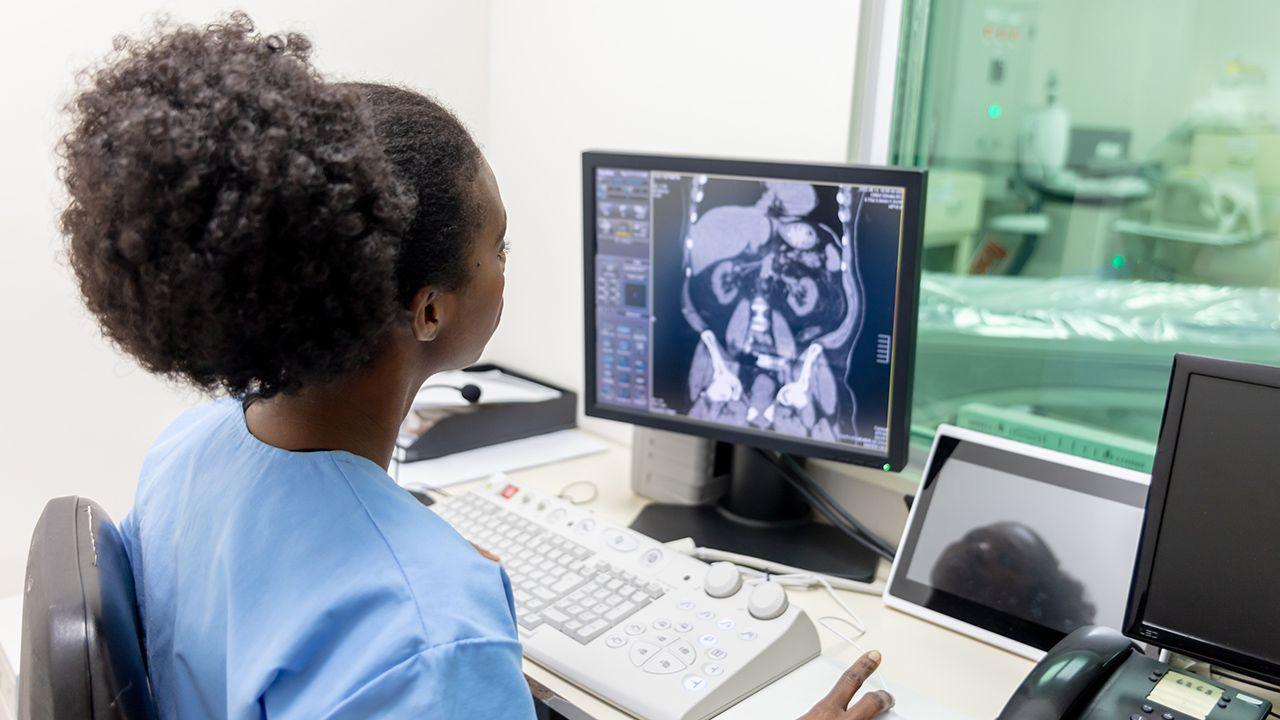'Exciting' research could improve cancer treatment

The study was partly funded by Cancer Research UK
- Published
Scientists trying to improve survival for cancer patients say they have identified a key characteristic of the disease that could make treatment more effective.
The study, led by a team from the University of Southampton, aimed to find a way for people to respond better to immunotherapy.
The treatment uses the body's immune system to kill cancer cells, but at the moment the majority of people with cancer see no benefit from the treatment.
By using tissue samples donated by patients from Poole Hospital, researchers said they had identified a different type of cell that could improve immunotherapy outcomes.
Many patients suffer a relapse or experience significant side effects, including painful inflammation in the bowel, skin or the lungs, as a result of immunotherapy.
But it is hoped the newly recognised fibroblast - a type of cell that surrounds tumours - could be used help the body's immune system attack tumours.

Gareth Thomas is a professor of experimental pathology at the University of Southampton
The £1.4m study, which was partly funded by Cancer Research UK, was led by Prof Gareth Thomas.
"We have spent a long time studying the types of cells that stop immunotherapy from working properly, and we already knew there was a certain type of cancer-associated fibroblast that blocks the body's anti-tumour immune response," he said.
"In this study, we decided to do the opposite, and try to get a better understanding of cells that actively support anti-tumour immunity."
To do this, the team analysed particular head and neck cancers which are known to produce a strong immune response.
"Excitingly, in these cancers we found a type of fibroblast that we think helps stimulate anti-cancer immunity," prof Thomas said.
"We also found this cell in other cancer types and have shown that patients whose cancers contain lots of these cells have a much better response to immunotherapy."
He added that the next step was to see if the findings could be used to "develop a treatment that supercharges a patient's response to cancer immunotherapy".
Cancer Research UK's executive director of research and innovation, Iain Foulkes, said the study was an "exciting development", adding that he hoped it could lead to "better chances for patients" undergoing immunotherapy.
Get in touch
Do you have a story BBC Hampshire & Isle of Wight should cover?
You can follow BBC Hampshire & Isle of Wight on Facebook, external, X (Twitter), external, or Instagram, external.
- Published6 October 2024

- Published31 May 2024

- Published2 January
